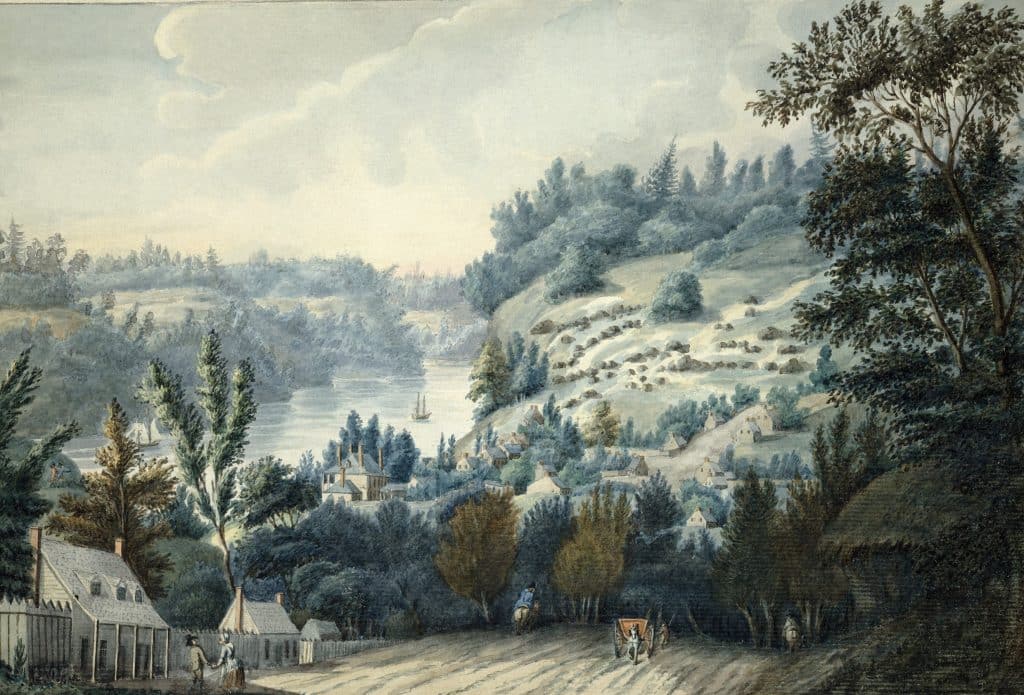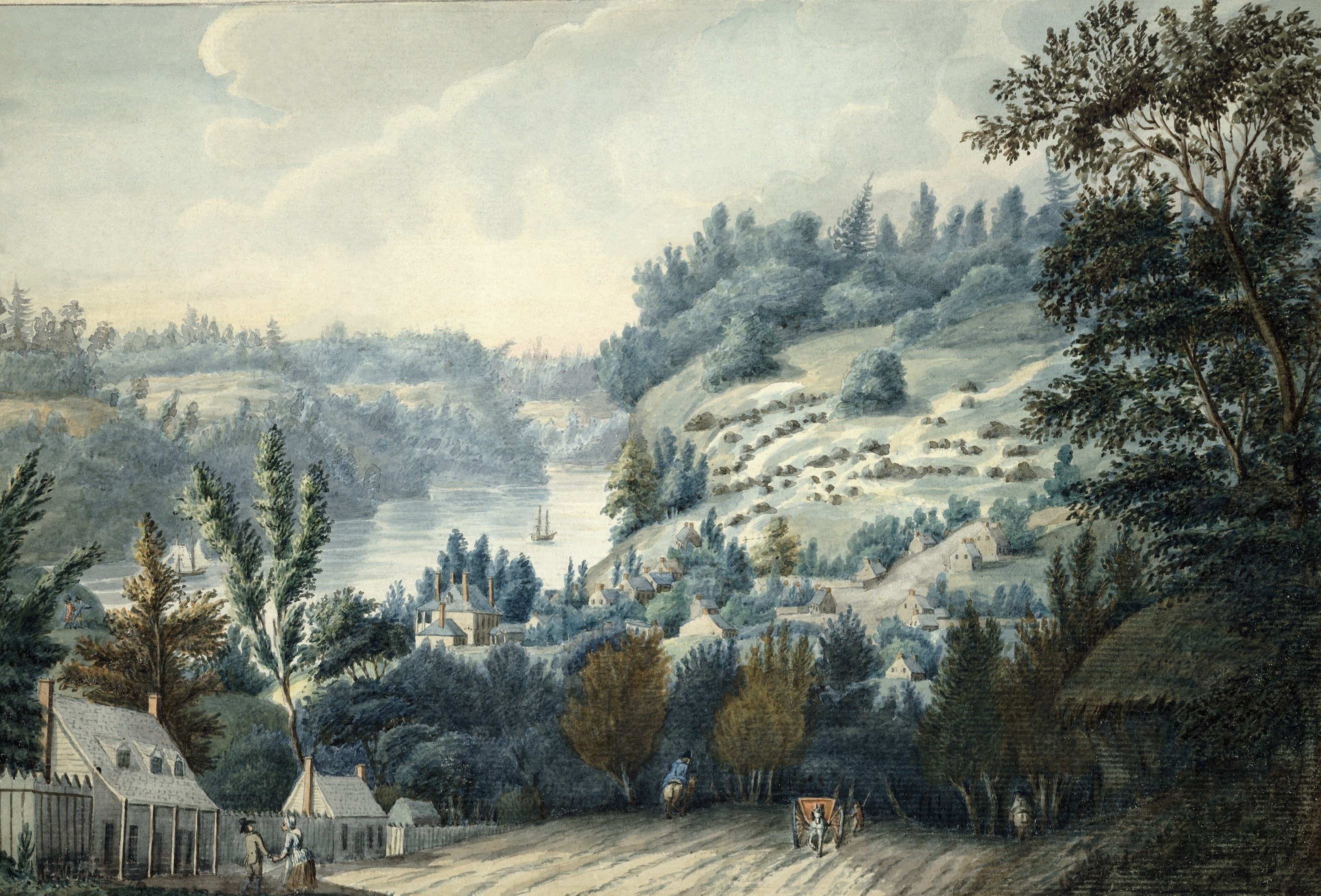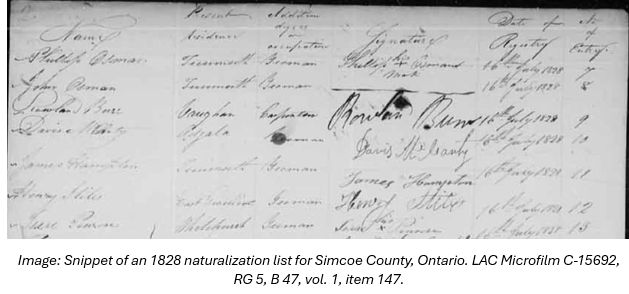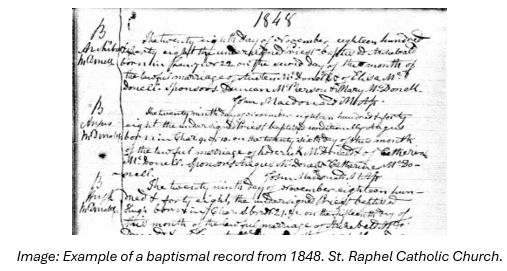Researching Ontario Ancestors : Part 2
 21
21Nov

This is part two of a two-part series about researching ancestors in Ontario, Canada. This part will cover in-depth research techniques and resources that are unique to Ontario. Part one covered basic strategies and resources for Ontario research.
On-site Records
If you have researched your family for any amount of time, you know that not everything you need to successfully grow your tree is online. Despite the many millions of records that we have at our fingertips online, a vast majority of records are still housed on location in archives, libraries, and society buildings.
One of the best resources for on-site research is the Library and Archives Canada (https://library-archives.canada.ca/eng). Although the site has thousands of records available online, you can search their catalog for items that are available in person at one of their four facilities: Ottawa, Halifax, Winnipeg, and Vancouver. Be sure to visit their “Visit Us” page to learn how to prepare for your visit. If you find an item in the catalog but cannot visit in person or are not able to hire someone to do on-site research, the library does give you the option to purchase a copy of the record. The cost and availability of this service will depend on what type of material you are requesting.
Located in Toronto, the Archives of Ontario (https://www.archives.gov.on.ca/en/index.aspx) is a great resource for Ontario-specific research. You can search their catalog for various types of records including documents, books, photos, maps, and other kinds of materials.
County archives, historical societies, and genealogical societies are great places to discover location-specific kinds of records – many of which are not available online. When you find that the county you are interested in has a website, check if they have an online catalog, or send them an email to inquire about their holdings. Although many of the town or county’s vital records are kept at other facilities, local repositories often carry manuscripts and photographs that were donated that pertain to people who lived in the local community. For example, when searching the Simcoe County Archives catalog, I was able to locate a photograph of my 4x great grandmother’s brother! This photo was found nowhere else, and had I not checked the catalog, I would not have known this photo existed.
Online Records
We talked in our last blog post about many of the records that are available online. All the repositories mentioned so far also have an online digital archive, where you can access digital records and books. Check the catalog of each of these sites to see what is available.
Other Records
Naturalization Records
The Library and Archives Canada has a great database entitled Naturalization Records, 1828-1850 – Upper Canada and Canada West for searching naturalization records for your immigrant ancestor. There were three naturalization acts passed in Canada pre-1850: one in 1828, which required that alien men who had lived in Upper Canada for seven years take the oath of allegiance to become British subjects; one in 1841, when Lower and Upper Canada merged; and one in 1845, requiring an oath of allegiance be taken after a man resided in Canada for 5 years (instead of the previous acts which required 7 years of residency). The records in this database are not only indexed, but the names are searchable.

Wills, Probate, and Estate Records
Records created after the death of an ancestor sometimes provide the most information about their life. Wills, probate, and estate records are great substitutes when a death certificate doesn’t exist, and they can provide details about your ancestor such as property owned, names of their spouse and children, and how much money they had.
When trying to find probate documents for your ancestor, an Ontario researcher must become familiar with which court was responsible for handling the probate process. The Court of Probate oversaw handling estates that were valued over £5 and with property that was in more than one district. The Court of Probate did not handle as many files as the Surrogate Court.
The Surrogate Courts handled probates that had real estate in only one district. Pre-1859 files, regardless of the district that the file was filed in, are microfilmed and available at the Archives of Ontario and can be searched by name using the catalog. If you locate your person of interest in the catalog, there will be a reference code that refers to the microfilm and estate file number. Then, you can head over to the FamilySearch catalog, which has the microfilm for these records (https://www.familysearch.org/search/catalog/218510?availability=Family%20History%20Library). The microfilm on FamilySearch also has an index, if you prefer to manually search for your ancestor. Post-1859 estate files are organized by the county in which they were recorded in. One of the best resources for finding county estate files is the FamilySearch catalog. Almost all the county estate files are not indexed, so you will need to view the microfilmed index for your county. Availability and access are going to depend on the county and the time period in which you are interested.
Religious Records
Church registers, when they exist and can be found, can provide great substitutes for missing vital records, especially before consistent recording began. Finding these records can be a bit difficult. You will need to know the denomination of your ancestor, where and when they would have attended a particular church, and you will need to determine if registers were kept, if they survived, and where they are housed.

Luckily, there is one advantage to Canadian research when it comes to finding religious records. Canadian census records recorded the denomination of your ancestor’s religion. Using this information can give you a head start on find their church records. Once you determine your ancestor’s denomination, head over to the FamilySearch wiki on Ontario Church Records. They have compiled a great research guide with links to various websites and collections.
Conclusion
Researching your Ontario ancestor can be a rewarding experience if you are armed with the right tools and resources. Ontario has great record collections that you can utilize to learn more about your ancestor’s life and to build your tree. Hopefully you have learned about some of the resources that were discussed in part one and two of this blog series, and that it got you to think about various record types where you might find your ancestor.
If you would like some help researching your Canadian ancestors, reach out to Price Genealogy and we can help you!
By Tyler
Resources
Library and Archives Canada, https://library-archives.canada.ca/eng
Archives of Ontario, https://www.archives.gov.on.ca/en/index.aspx
Upper Canada and Canada West Naturalization Records, 1828-1850, Library and Archives Canda, https://www.bac-lac.gc.ca/eng/discover/immigration/citizenship-naturalization-records/naturalization-upper-western-1828-1850/Pages/introduction.aspx
Pre-1859 Surrogate Court Files for Ontario, FamilySearch, https://www.familysearch.org/search/catalog/218510?availability=Family%20History%20Library
Ontario Church Records, FamilySearch Wiki, https://www.familysearch.org/en/wiki/Ontario_Church_Records
Painting: Queenstown, Upper Canada on the Niagara; Edward Walsh (1756-1832), Public domain, via Wikimedia Commons
